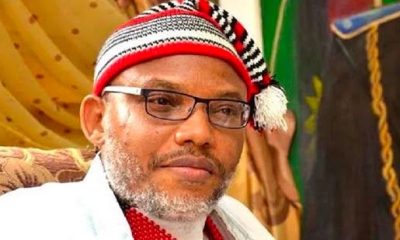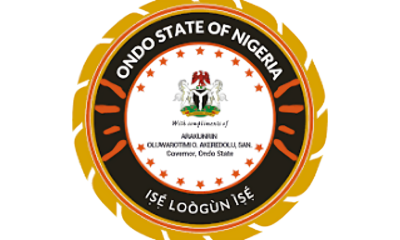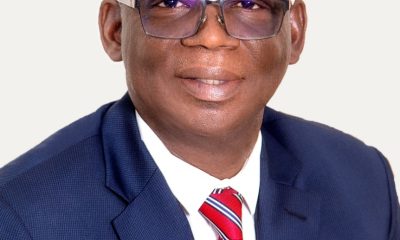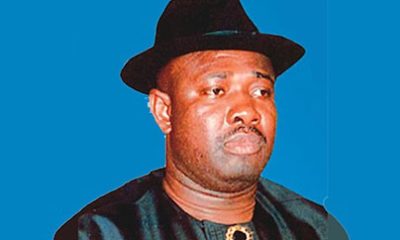Education
A SHARED LIFE: THE ALUMNUS AND ALMA MATER CO-DEPENDENCY
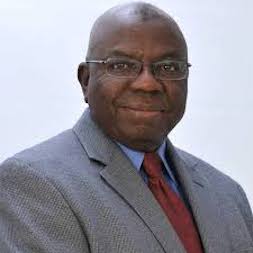
A GUEST SPEECH AT THE ANNUAL CONVENTION OF MT. ST. GABRIEL MAKURDI OLD BOYS
28TH SEPTEMBER 10AM
BY PROF IYORWUESE HAGHER Introduction
Firstly, addressing the Convention of the Old Boys of Mt. St. Gabriel’s Secondary School is a privilege.
This school, which was relatively young compared to older schools like Government Secondary School Katsina-Ala, Mt. St. Michael’s Secondary School Aliade, and W. Bristow Secondary School Gboko, has now stood shoulder to shoulder with the older schools and even surpassed them. My relationship with this Alma Mater has been through some of your celebrated alumni, whom I have studied with, and enjoyed working with as colleagues at the universities and on the political stage. I also had a robust relationship with your legendary principal, Rev. Father Angus Fraser, who the people of Benue State have recognized as the Bellwether of qualitative education. Four times, Mt. St. Gabriel won the Iyorwuese Hagher, Benue Academic Excellence Awards as the best Secondary School. And four times, I handed the giant trophy to Principal Angus Fraser. But my relationship with the late legend gets more profound and fascinating. Today, I am the Chairman of the Board of Angus Fraser College; my boss (the proprietor), Dr. Achado, is the son of one of your celebrated Alumni, the Honourable Dr. Arch. Asema Achado.I wish to discuss A Shared Life: The Alumnus and Alma Mater Co-dependency. It will be very brief, so bear with me. Everybody knows the Latin word Alma Mater, which means nourishing mother. In Nigeria, the popular song, “Sweet Mother” best illustrates this Alma Mater, matter. A highlight song by the Cameroon Nigerian singer Prince Nicombarga and his Rocafil Jass Band. The Alma Mater is the Sweet Mother, and your remembering sweet Mother Mt. St. Gabriel today exemplifies your firm refusal to forget your relationship with your college. “Sweet Mother, I never forget you for the suffer which you suffer for me.” This is why you are here in reverence to the sweet mother, Mt. St. Gabriel, gave nourishment to you and now you are everywhere. The products of this college, the alumni, are all over the world pursuing various careers. Little did you envisage that happening when you were here as young adults, fortifying yourselves with the knowledge to confidently face the future and the world?All over the world, grateful alumni become benefactors to the Alma Mater by providing infrastructural development, cash donations, endowments, scholarships, and even insights into curriculum development. The success of any school can be measured by the amount of contribution of the alumni to the development of the school and the nation. Standing in this hall alone articulates the co-dependency role of your alumni who are everywhere extending the influence of the Alma Mater. It is no secret that a product of this school became a senator and senate president, was minister many times, as well as the Chairman, of one of Nigeria’s ruling parties. Senator Dr. Iyorchia Ayu is a worthy alumnus and a source of pride to the Alma Mater, but many more alumni have also made valuable contributions. All these efforts cohere towards inspiring both the staff and students (future alumni) towards more incredible strides to achieve more in life and also to never forget the Alma Mater. The non-terminal task and duty of the alumni is to raise money for the development of the Alma Mata throughout the life of the Alma Mater is a glorious responsibility.Your return to Mt. St. Gabriel is the return to home and nourishment. It is a nostalgia trip, which is good for your spirits. The tremendous emotional and social significance of MSG cannot be overemphasized. To many of you who have reached dizzy heights of achievements, a trip to this home is a reality check. It is a place where you remember your small beginnings and locate deep inside yourselves those qualities and attitudes where you gained innovation, resilience, and a solid will to march forward no matter the challenges. Coming here and relating to one another as siblings of the same Alma Mata helps build a community spirit in all of you. You are not alone and must face challenges in fellowship with kind words from fellow alumni and even a helping hand in times of need.Many of you may think you need more to compete with the other alumni who are more successful. The fact is that your coming here alone and being alive, and well, alone, is enough. No alumni cannot give thanks and share a carton of water with some staff and students. Doing your part is nothing to feel ashamed about. When we are home with our mother, we can express vulnerability without feeling inferior. Nothing is too small to give to a loving mother in this hallowed moment of grace. This is home, and even if you don’t have a bottle of water to share, please sing “Sweet Mother” to MSG and wear her school badge as a brand promotion. This could also help recruit some new students. Everybody has something to contribute to raising the self-esteem, alliances, and community of former Students and children of Sweet Mother MSG. It is often said that if you do not know where you are coming from, any place could be your destination. Never forget MSG as your solid educational base and your roots. The strength of your alumni must be loyalty to yourselves and to each other. Let us now examine whether, in the sixty years since this college was established, we have achieved the goals and aims of the founding fathers: the missionaries who founded and located this school to be built. Evidently, with your massive attendance, what we see, and the testimonies of continuous exceptionalism in academic excellence, we can say the aims and goals were achieved and even exceeded.But let us tarry awhile. The whole purpose of education is to instigate change. As Nelson Mandela said, “Education is the most powerful weapon you can use to change the world.” As a product of a sister missionary school, I can attest that Mt. St. Gabriel, like Bristow Secondary School, my Alma Mata, was established to teach children the values of kindness, humility, love, and sacrifice. Secondary education is aimed at teaching us how to work in teams quickly and efficiently. While I was at William Makel Bristow Secondary School, I found my vocation as a writer. Most of us found our voices as distinct human beings during the secondary school year. If we meet any alumni of Mt. St. Gabriel anywhere, what we expect of him is a certain moral quotient, a certain humility, and a particular love of others. The big-picture aim of all the Christian Mission Schools was to love and serve God. The alumni who are proud to keep returning to this home, this Alma Mata, are those who got passports for the future they are in now. The present belongs to those who prepared for it yesterday, and the future belongs to those who are preparing for it today. This should be the recurring theme and motivation to inspire the alumni and present students of MSG to work harder.As students of MSG, you were involved in a learning process with your teachers, some of whom became your personal friends and mentors. While here, you were engaged in a two-way dialogue about problems and the sharing of learning, laughter, and virtues of Christian attributes of love, forgiveness, humility, and being a good Samarian to a hurting world.Those young adults who found no stimuli for the activities of Mt. St. Gabriel and refused to be involved in this dialogical learning system have also gone on to be successful, mainly because they are attracted to and desire to possess things. But those to whom Mt. St. Gabriel entered into them have gone to render invaluable services to mankind and in diverse fields. The main hope of a nation does not just lie in education; it lies in the proper education of its youth. A good education can change anyone and a good teacher like Fr. Angus Fraser can change everything.Rev. Angus Fraser was a good teacher. He was a Bellwether of Education in Nigeria. He instigated massive change at Mt. St. Gabriel and led the staff and students from low self-esteem and a victimhood mentality to become heroes and champions of academic excellence. Angus Fraser was responsible for creating legacies that took generations of Alumni to levels they could only imagine.Education has often been said to be a preparation for life. This is not totally the case. Education is life. Many of the unfortunate 23 million Nigerian youth who are not enrolled in any educational institution today can tell you that they are the living dead. Mt. St. Gabriel’s education collected all the young students from various backgrounds, and through collaboration, interdependence, and the collective show of gifts from different cultures, roots, and backgrounds, enriched the Alma Mata.I congratulate you all on being enriched in this environment to face the challenges that you see in front of you every day. Life is happening, and there is so much humanity and so many beautiful ideas to change the world. Please be the change we have been waiting for. Change yourself, your home, and your community, one child at a time, and Nigeria will be a better place.I must now bring us to an uncomfortable reality that the educational system of yesterday has hardly served us in contemporary Nigeria. While we were studying so hard, a section of our country put a palm to our face and said, “Ba Turanci.” They constitute more than 70% of those who don’t speak the English language, and now Nigeria is faced with a dreaded terrorist group, Boko Haram, whose battle cry is “Book knowledge or Western Education is a curse” and “Boko Haram.”While Mt. St. Gabriel is toiling to change Nigeria, 23 million Nigerian children are out of school. Mt. St. Gabriel is among the 27,047 secondary schools in Nigeria, producing about 5.2 million school graduates annually. Less than one million will be absorbed in higher education. Each year, over four million secondary school graduates will become unemployed or unskilled laborers, bandits, or dependent youth engaged in antisocial activities.There is a crisis in Nigeria’s educational sector. Nigeria’s Alma Mata is no longer capable of providing nourishment. The Alma Matas are failing young adults at a miserable time when globalization has changed everything. The children are obviously getting the wrong type of education, and Nigeria is going to be the worse for it. Changes in the world and education have been so rapid in the past 20 years that our children feel dizzy. They must continually unlearn old methods and modes of thinking. They now must innovate to learn in a steady stream of change that is relentlessly saturating us with new inventions, systems of thought, and new learning environments, including street corners.Advances in Science and Technology have made it imperative for the alumni and the Alma Mata to find viable answers to educational questions and new knowledge to face existential challenges. Something drastic has happened to Nigeria. We are witnessing the latest generation, which is different from anything the country and the world have seen. We are seeing the rise of the global Generation Z for the first time. This new generation is appropriating a planetary civilization, and our educational system must find an educational system that is international enough to address global issues of change and yet be patriotic enough to embrace Nigerian traditions, innovations, and space.The Alma Mata must provide an education that aligns with the new things happening in the world we are part of, a single planetary civilization in which the most remote people and the most minor children are seamlessly connected. Our loyalties to villages, tribes, and nations have broken down. We must enlarge our small loyalties to embrace global concerns about the economy, the environment, and health. The recent experience of the COVID-19 pandemic shows how the whole world is now so small and connected by mutuality. Alma Mata may even now find the Gen Z students in session rebellious and even downright ungrateful. I beg you to withhold judgment. Their attitude might be rebelling and failing examinations because our education system is archaic. Maybe we are teaching them as we were taught. We need to learn how to incorporate what the young have learned but which we still need to. We need to be nourished by our children and grandchildren. We need reverse mentoring by them.It is now ironic, oxymoronic, and even pathetic to hear us call our Gen Z children the leaders of tomorrow. They smile, smirk, and laugh at us. They know that they are leaders of today, not tomorrow! We must accept that we have become immigrants into the new age where the education that prepared us for life is no longer adequate for living fulfilled lives. We are aliens vastly outnumbered by Gen Z and must adjust to survive. Nigeria is failing the world due to the lack of attention to its educational sector, which is no longer nurturing. Poorly performing Nigerian youth who migrate abroad perform excellently because the nurture of the Western Alma Mata gives nourishment that enables our deprived youth to become exceptional. As we gather here today, we must be aware of the tragedy that has befallen Nigerian educational institutions, including, unfortunately, our Alma Mata. We must address the following challenges in the educational sector.1. There needs to be better funding for the educational sector. Year after year, Nigeria’s educational budgets have been far below the UNESCO stipulation of 29% of the gross budget. This year, Nigeria’s budget is 6.39%, which is lamentable. Nigeria’s education budget hovered between 6 and 8 percent throughout Buhari’s eight years. Let us compare with Ghana’s 14.5%, Kenya’s 30%, Namibia’s 27.3%, South Africa’s 19.75%, Lesotho’s 18.4%, and Rwanda’s 14%. Even Togo and Liberia have budgeted higher than Nigeria, above 15% among the West African countries. Nigeria’s global status as critically weak and tottering to state collapse is the high price we have paid to harvest ignorance instead of a good education. 2. Besides funding, Nigeria’s secondary schools need more qualified teachers. This is notably lacking in Mathematics and English, which are the building blocks of academic success. The teaching profession is despised, and only the very weak students apply to read education, knowing they will settle for a miserable life. 3. Teachers in Nigerian Secondary Schools seldom engage in continuous training. They fail to update their knowledge and skills to prepare today’s youth to live meaningful lives. 4. Nigeria is failing to accommodate the rising population demand for more and better schools. This is why we have the world’s highest number of out-of-school children. The Youth Bulge population is a Time Bomb. Let us expect the explosion in a civil war, bloody revolution, or another pandemic.5. Nigeria has a low university admission capacity. In this year, 2024 alone, of the 1.9 million students who wrote JAMB, more than 1.4 million scored below the 200 average. Nigerian universities dismiss more than a million applicants yearly for various reasons. This poor educational performance is critical to our manpower development and productivity shortages. We cannot be a prosperous nation when our productivity is so low because we have fallen into a poverty trap mentality and pay more to buy arms than to purchase books. Little wonder about our security challenge. 6. There is rampant academic fraud, corruption, indiscipline, cultism, and drug abuse at all levels of our educational system. Our children cheat during examinations, impersonate, falsify academic records, pay for certificates or grades, or give money and grant sexual favors for pass marks. They terrorize their examiners and assault their invigilators. We must deal with these with action, prayers, and good teachers. 7. Bad governance and low standards of living militate against good education. 8. Politicization of education in appointments and admissions into courses. The rich get the professional courses, and the poor and downtrodden get non-essential courses, which fail to guarantee their survival in the world today, not to mention a more challenging tomorrow.9. The secondary school system must respect the adolescent’s needs and right to work. Students should earn credits working on farms, selling in shops, or learning a skill as they study on our school grounds; we must be creative.10. Nigerian Secondary Schools should open up to their catchment communities and become community centers, where all adults are given a focus, protection, and opportunity to learn to be full human beings. The curriculum should be innovative, and students should be taught relevant skills.In conclusion, I wish to call on the Alma Mata and alumni to join hands in the wonderful opportunity of creating history together to benefit our children and grandchildren. We need to declare Nigeria’s educational system a National Disaster and rebuild it from below, from crèche to the tertiary, if Nigeria hopes to survive as a viable country in the first half of this 21st century.community
UTME: JAMB To Hold Additional Mop-up Exam for Absent Candidates

Joint Admissions and Matriculation Board (JAMB) says it will conduct additional mop-up examinations for candidates who missed the 2025 Unified Tertiary Matriculation Examination (UTME).
JAMB Registrar, Prof. Is-haq Oloyede, stated this on Wednesday in Abuja at a meeting with key stakeholders to address the challenges encountered during the 2025 UTME.
Oloyede said that the board would accommodate the estimated 5.
6 per cent of candidates who missed the examination by organising a special mop-up exercise.He said that the board had extended the opportunity to all the affected candidates, regardless of the reasons for their absence.
“Normally, we hold one mop-up nationwide for those with one issue or the other.
“But this time, we are creating a new mop-up. Even those who missed the earlier examination due to absence, we will extend this opportunity to them.
“It is not that we are doing something extraordinary; in class, you make up an examination when students miss it for one reason or the other; we just don’t allow abuse of that.
“So we will allow all the candidates who missed the main examination for any reason to take part in this mop-up,” he said.
Oloyede criticised some public commentators who misunderstood and misrepresented the role of UTME, while clarifying that UTME was a placement test and not an achievement test.
According to him, the purpose of the examination is to rank candidates for available spaces in institutions and not to measure intelligence or overall academic potential.
The registrar further stated that high UTME score was not the sole determinant of admission, adding that combined performance, including post-UTME scores and school assessments, could significantly affect a candidate’s ranking.
While acknowledging the emotional strain experienced while announcing the UTME results, he noted that this was not indicative of an institutional weakness.
He expressed JAMB’s commitment to resolving issues affecting the examination process, even as he rejected comments suggesting that the administrative failure was due to incompetence or ethnic bias.
“I want to say this clearly, particularly because I accepted responsibility, not because I do not know how to do the work.
“I say it for the fourth time that no conspiracy theory is relevant to this case.
“Something happened; like people who have been doing something well for years and something just went wrong. That I should now throw them under the bus? No,” he said.
Oloyede, who frowned at those exploiting difficulties to promote ethnic or conspiracy-driven narratives, urged stakeholders to stop ethnic profiling in the education sector.
According to him, many of the criticisms of JAMB’s operations are rooted in ignorance.
The registrar, however, commended his team’s efforts, while also appreciating the resilience shown by candidates, many of whom, he said, had continued their exams, notwithstanding the various challenges. (NAN)
Education
Using CBT for WAEC Will Adversely Affect Sciences— Ebonyi Reps Member

A Federal Lawmaker from Ebonyi, Chief Chinedu Ogah, has declared that the usage of the Computer Based Technology (CBT) for the West African Examination Council (WAEC) would adversely affect science subjects.
Ogah, who represents Ikwo/ Ezza South Federal Constituency at the House of Representatives, made the declaration on Tuesday while speaking with newsmen on WAEC’s proposed plan to introduce CBT from 2026.
The lawmaker said that the move would affect several scientific applications practically used to access students in WAEC examinations.
“What will happen to several scientific.mixtures, equations, mathematical applications among others practically applied during WAEC examinations?.
“Such measures are evidently not feasible and will adversely affect sciences in our educational curricular.
“Science is practical and the earlier we understand this, the better for all,” he said.
He noted that the glitches recorded during the recent Joint Admission and Matriculation Board (JAMB) examination was unfortunate.
“The registrar should review the activities of its Information Communication Technology (ICT) department.
“It is ridiculous for JAMB to conduct the examination without adequate provisions for the ease of candidates,” he said.
Ogah urged people from the south east zone which the glitch was touted to have targeted, to embrace the home grown technology it was known for.
“We are known for technology and innovation.
“Government of south east states should equip our schools with ICT so that students would be acquainted with its usage, early,” he said. (NAN)
Education
Apology over Failure Not Accepted, Kalu Tells Oloyede
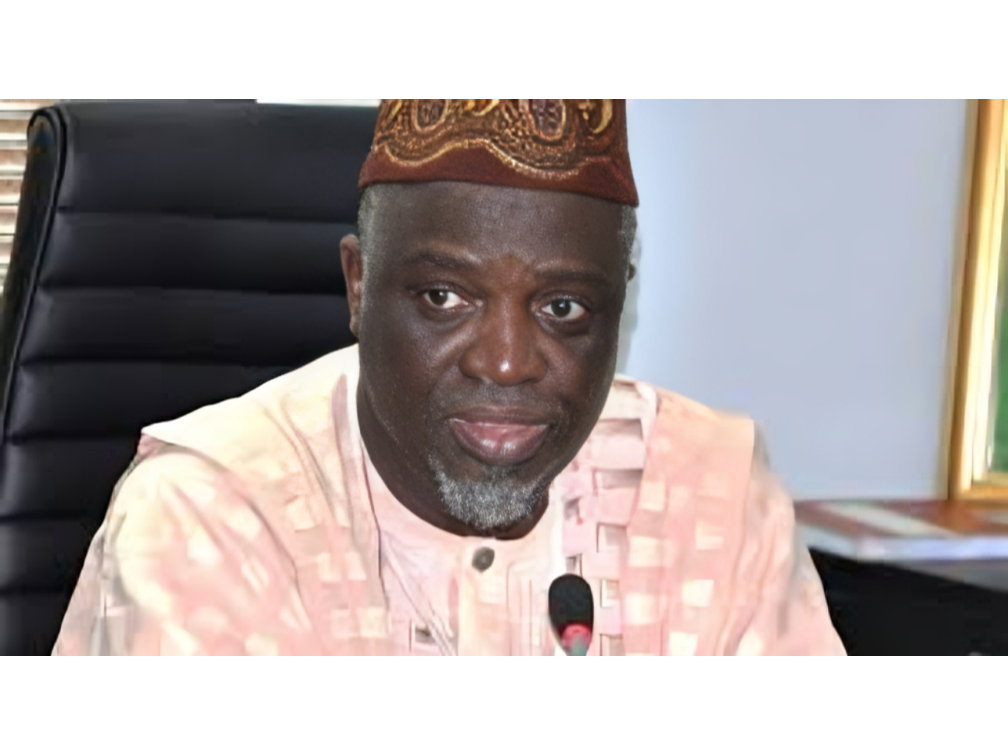
By Ubong Ukpong, Abuja
House of Representatives Deputy Speaker, Rt. Hon. Benjamin Kalu yesterday, raised serious concerns bothering on the activities and competence of the Joint Admission and Matriculation Board (JAMB), blasting the examination body for demonstrating gross incompetence, frustrating Nigerians and the nation’s education system in the 2025 Unified Tertiary Matriculation Examination (UTME).
Kalu, who addressed the House of Representatives Correspondents on his misgivings, said the examination body has cost Nigerian people so much pain, leaving candidates traumatized and hopeless.
“The mass outcry that followed the release of this year’s results, and the subsequent technical review, demands not only transparency but decisive action to restore faith in our educational system.
“First of all, let me begin by commending the candor, touching humility, and accountability demonstrated by the Registrar of JAMB, Professor Ishaq Oloyede, and his team in admitting to the technical errors that affected nearly 380,000 candidates across the South-East Geopolitical Zone and Lagos. The swift apology and the decision to offer retake opportunities for all affected candidates reflect a commitment to fairness and justice.
“However, we must recognize that these measures, while necessary, do not erase the trauma, disruption, and uncertainty experienced by our young people and their families. Nigeria unfortunately lost a UTME candidate to suicide, consequentially triggered by the ensuing results of this technical glitch. Our heart goes out to the loved ones of this brave young one.”
On the technical Issues in Detail, the Deputy Speaker who sounded quite displeased said, “The technical review results available to me have revealed that a critical system patch essential for the new shuffling and validation protocols was not deployed to the server clusters servicing 157 centres in the South-East and Lagos.
“One of the most critical discoveries made revolved around three major systemic changes introduced in the 2025 UTME. The first was a shift from the traditional count-based analysis to a more robust source-based analysis of results. In previous years, JAMB evaluated the integrity of examination sessions primarily by counting the number of responses submitted per session. If the majority of candidates in a session of 250 submitted a near-complete set of answers, the session was deemed valid.
“Any significant deviation led to the disqualification of that centre’s results.
However, in 2025, a more advanced model was adopted; one that focused on the actual source and logic of the answers provided, rather than just their quantity.
“The second change involved full-scale shuffling of both questions and answer options. This ensured that even two candidates sitting in the same session would not receive identical permutations, thereby enhancing test security. The third change was a series of systemic improvements aimed at optimizing performance and reducing lag during exam sessions. This was a major policy change that saw the best and highest obtained UTME score in 15 years; a remarkable achievement by JAMB in principle.
“However, while these improvements were technologically sound in theory, a major operational flaw was uncovered during the implementation phase.
“The system patch necessary to support both shuffling and source-based validation had been fully deployed on the server cluster supporting the KAD (Kaduna) zone, but it was not applied to the LAG (Lagos) cluster, which services centres in Lagos and the South-East. This omission persisted across all sessions until the 17th session, after which the error was discovered and corrected.
“As a result, approximately 92 centres in the South-East and 65 centres in Lagos, totalling 157 centres, operated using outdated server logic that could not appropriately handle the new answer submission and marking structure. This affected an estimated 379,997 candidates, whose results were severely impacted due to system mismatches during answer validation.
“To verify the scale and accuracy of this issue, JAMB collaborated with the Educare Technical Team, which had gathered response data directly from over 18,000 candidates. After deduplication and filtering, about 15,000 authentic records were analyzed. Of these, more than 14,000 originated from the regions serviced by the unpatched LAG servers, confirming the technical review’s findings. Comparative analyses between JAMB’s internal audits and third-party system evaluations revealed significant overlap, reinforcing the conclusion that the affected centres were indeed operating under impaired conditions.
“As a result, candidates in these centres were unfairly disadvantaged, with their responses improperly validated and their scores misrepresented. This was not a failure of our students, nor a deliberate act of sabotage, but a preventable human error within our system.
“We must not underestimate the toll this has taken. Parents and candidates have voiced legitimate concerns about the hurried scheduling of re-sit examinations, the overlap with ongoing WAEC assessments, the psychological strain, and the logistical burdens of traveling to distant centres on short notice.
“Reports from the resit examinations held on Friday include complaints of difficult questions, time management issues, more technical glitches, poor centre coordination, and a lack of adequate support for those still affected.”
The Deputy Speaker demanded that, in light of these revelations, urgent actions must be taken to protect all candidates that registered for the examination in year 2925.
He demanded a comprehensive review of all Reports, insisting that, “JAMB must immediately review all available technical and independent reports including those from third-party educational technology companies that have gathered candidate-level data to fully understand the scope and implications of the crisis. Only by triangulating internal findings with external audits can we ensure that no affected candidate is left behind.”
Equally, he demanded for an independent System audit, stating that, “Now that the rescheduled examinations have concluded, I urge JAMB to commission an independent, transparent audit of its entire examination infrastructure. This audit should involve external professionals, system engineers, and academic measurement experts to scrutinize every aspect of the CBT engine, question delivery, answer validation, and result collation processes.”
Kalu called for the safeguarding of affected Candidates, stressing that, “It is imperative that candidates from the South-East and Lagos who have already borne the brunt of these failures are not further disadvantaged.
“JAMB must provide a clear, accessible mechanism for remark and appeal, especially for those dissatisfied with the hurried re-sit or who experienced technical difficulties during the second sitting. Furthermore, coordination with WAEC and other examination bodies must continue to ensure that no candidate’s academic progression is impeded by scheduling conflicts.
He sought transparent communication and Data Release, maintaining that, “JAMB should proactively publish anonymized, candidate-level result data for independent verification and open its systems to Freedom of Information (FOI) requests as a gesture of transparency and accountability.
This will go a long way in rebuilding public trust.”
The Deputy Speaker called for the strengthening of Quality Assurance and Real-Time Monitoring saying that, “going forward, JAMB must implement stronger deployment validation protocols and real-time monitoring mechanisms to prevent recurrence.Every system update must be thoroughly tested and confirmed across all server clusters before deployment during high-stakes examinations.”
Admonishing the affected candidates, Kalu said, “Your frustration is valid, and your voices have been heard. The integrity of our national examinations must never be compromised by technical lapses or human error. As Deputy Speaker, Iassure you that the National Assembly stands ready to provide oversight and ensure that these reforms are not only promised but delivered.
“Let us turn this painful episode into a catalyst for lasting improvement. Our young people deserve a system that is not only fair, but resilient, transparent, and worthy of their trust.I end with this word of note to JAMB: “Strive even when you stumble; transparency and honesty builds trust, and trust propels us forward.”
Several candidates across the country have raised diverse concerns with the processes as superintendent by the examination body, JAMB.
Several candidates went to their centres but could not write due to technical issues in taking their biometrics and were recaptured with a promised reschedule, which has not been communicated yet, leaving candidates in panic.
Others were outrightly said to have been deprived from writing the examination for being minors, after all processes were completed and the Print Out issued.
Some who wrote the examination reported issues accessing their results with the issues code, averting that the network kept deducting their money, without offering the requested service.
Certain interests in the academic sector have continued to call for the scrapping of JAMB, insisting that the examination body was unnecessary, but allegedly profiteering from candidates.

